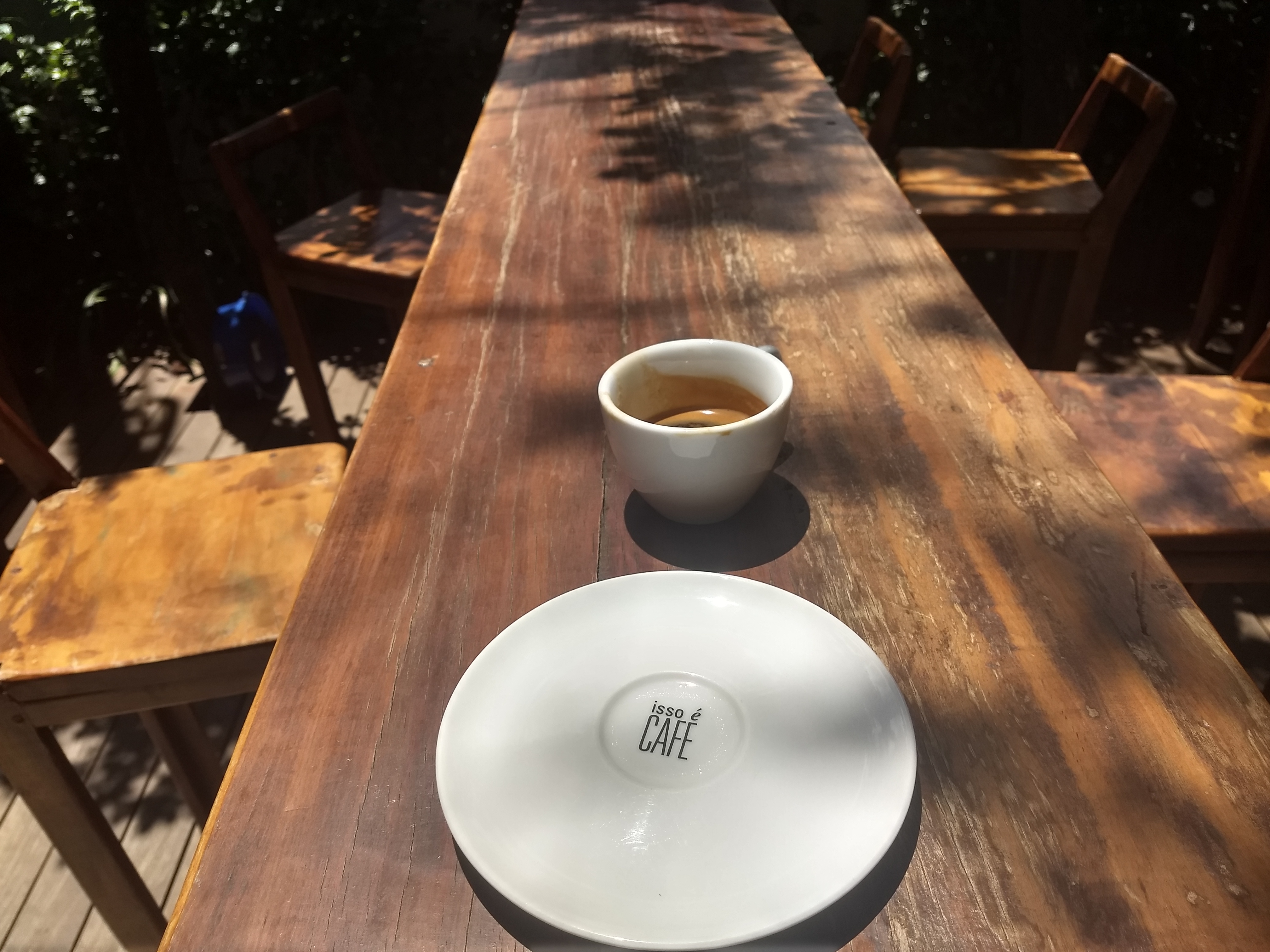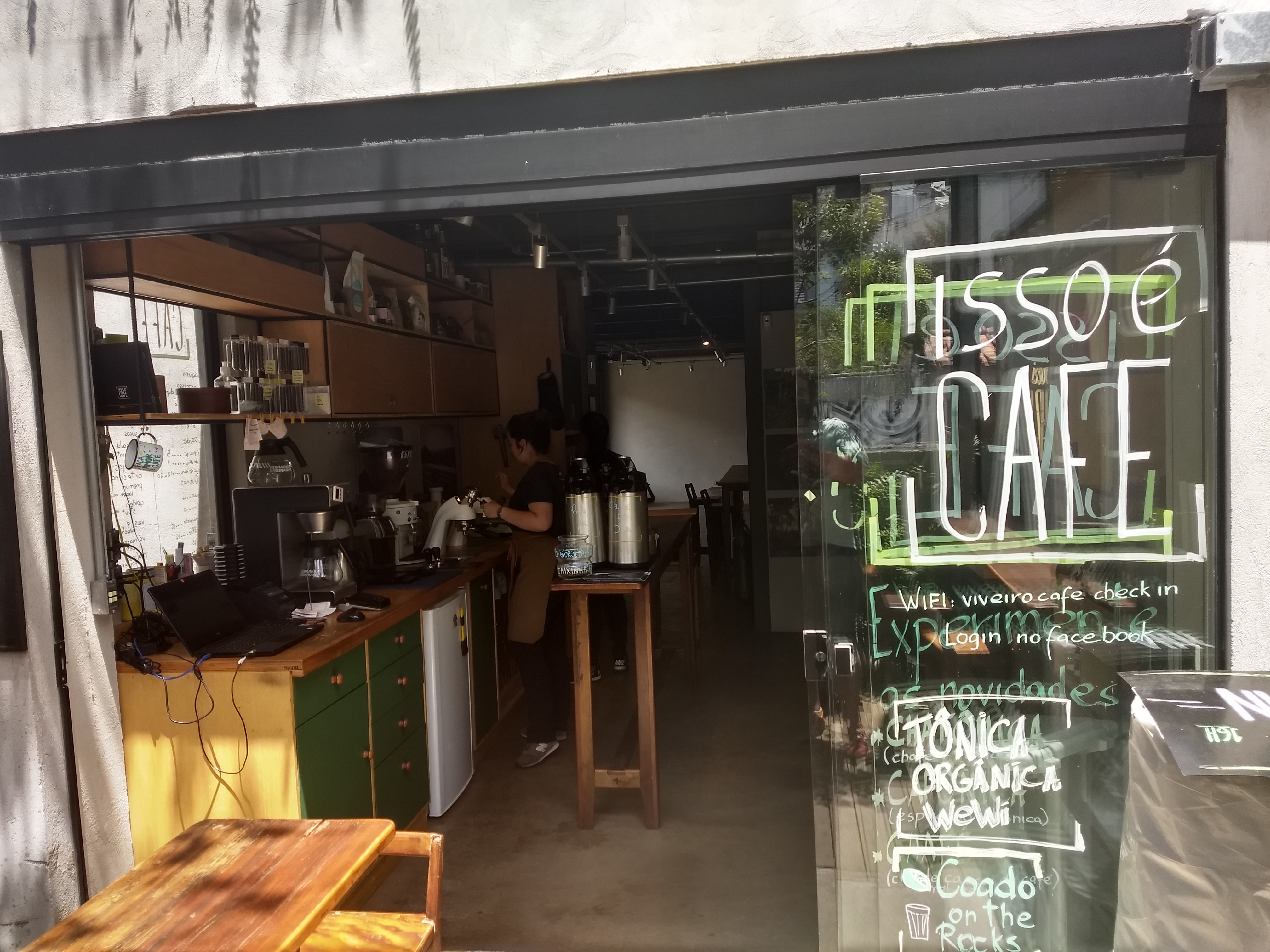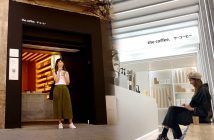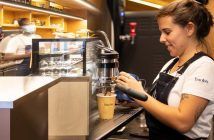He intends to launch, soon, a brand to market other organic products. The first one will be corn kernels to make popcorn
Felipe Croce is preparing to open his business, in July, a flagship store, in the Santa Cecília district, near Avenida Angelica, in São Paulo, a 400 square meters space. “There we will do our roasting process and it will be our export center and a large coffee shop”, says Felipe Exclusively for the Grão Especial.
“Our flagship store will have enough room to do our experiments. The idea is to have our identity all over the place, a place full of plants, without a counter, as it is here, in the Batman’s Alley. There, we can present our whole story so that our customer can understand the whole process, from seed to cup”, he explains. It’s a step further in consolidating the Isso É Café brand and, after that, take it to the rest of the world. “But this is a business project for my grandchildren to take care of”, he confided.
What he intends to present to our audience is the complexity of his work. The family companies are managed as three distinct entities: the FAF, Fazenda Ambiental Fortaleza, which is managed by his mother, responsible for the organic turn in the production of everything that is planted on the property, including specialty coffees; the second entity is the specialty coffees exporter, which is his father’s responsibility; and the third, is the Isso É Café, under his control. Altogether, they employ 60 professionals and an office in Chicago, selling coffee to Sweden, USA, England, France, Australia and Japan.

“Isso é Café will continue in the way we always wanted to pave, which is to raise the quality of our specialty coffees. Currently, I’m testing 30 different varieties on the farm and on our partner’s farms in Ethiopia, Kenya and Nicaragua”, he says.
Felipe says he has been planting for some time, varieties like Gueisha, Pacamara, SL from Kenya and several others from Ethiopia. “I’ve been planting and cataloging for three years, but it’s an experiment that takes time to show results”, he says.
“In Brazil, we have few coffee varieties. What is planted here today is comes from Sumatra, brought in by the Dutch in 1727, to be planted in French Guiana, and according to the legend, it was stolen and smuggled by Francisco de Melo Palheta to Brazil; and the Bourbon variety was brought in by the French to Rio de Janeiro in 1840. All varieties are descendants of these, chosen because of their resistance to pests and high production rates. Both have good, but common flavors. We are introducing new varieties, in search of new flavors. In addition, we have a Gueisha plantation that is very healthy, with high production rates”, he explains.
The original idea is to offer these coffees, first, to the foreign market, which is already more used to the more exotic flavors. And they already market their coffees to 35 countries.
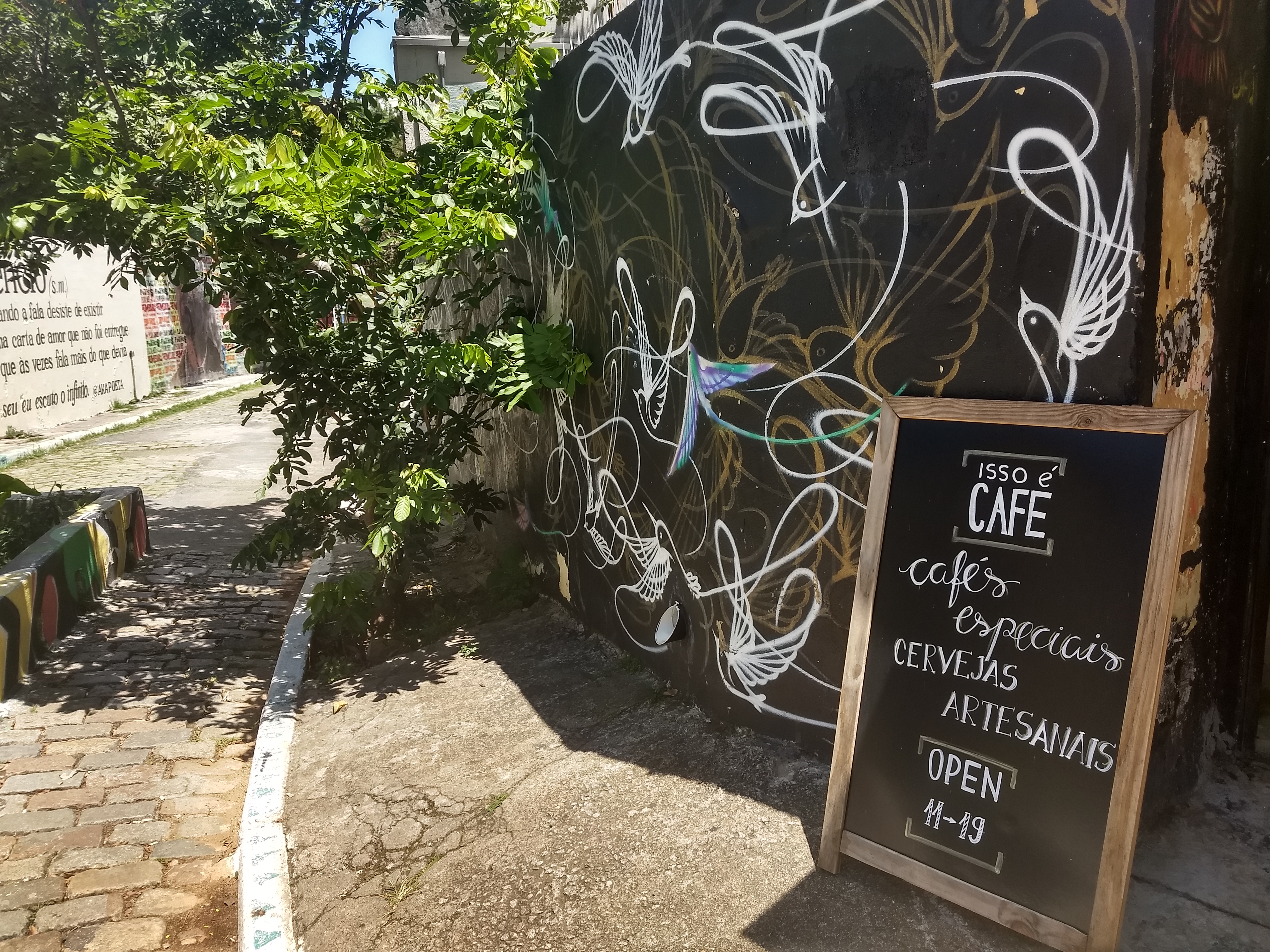
Last year, he resumed the coffee management on the farm and since then have been restructured coffee grounds by the varieties. “I’m mechanizing every process that I can. I rent a property in Caconde, at 1400 meters of altitude, where everything is done manually. I have a coffee-based agroforestry system that is also manual. The idea is to reach 30 hectares of specialty coffee, 80% of two species, Obatã and Paraiso, which I think give a solid, good and resistant coffee, with an 86 points average. The other 20% will be from exotic species, obviously all organic.
In addition, he is conducting some side projects on the property. The farmhouse was built in 1850 and Felipe says the idea is to set up a cafeteria where the farm school was located. “In recent times, we have made several improvements, including the kitchen that is now bigger and it enables us to take groups for discussion and experiments”. One of my plans is to be able to be closer to the restaurant chefs to bring these two worlds together. Our farm holds multiple businesses. An organic farm is like nature: multiple”, he explains.
As a natural consequence of this approach to the chefs, Felipe wants to produce several organic foods products under the Isso é Café brand. “At that moment, we are selecting the right trees, with adequate spacing to help both the coffee and food production. We already have organic oats, peppers, tomato, honey, cachaça and corn, jellies and syrups. We use our products in the recipes developed on the farm. We are working on the legalization processes”, he says.
Most likely, organic popcorn kernels will be the first product to be launched in the first half of 2018 under the Isso é Café brand.
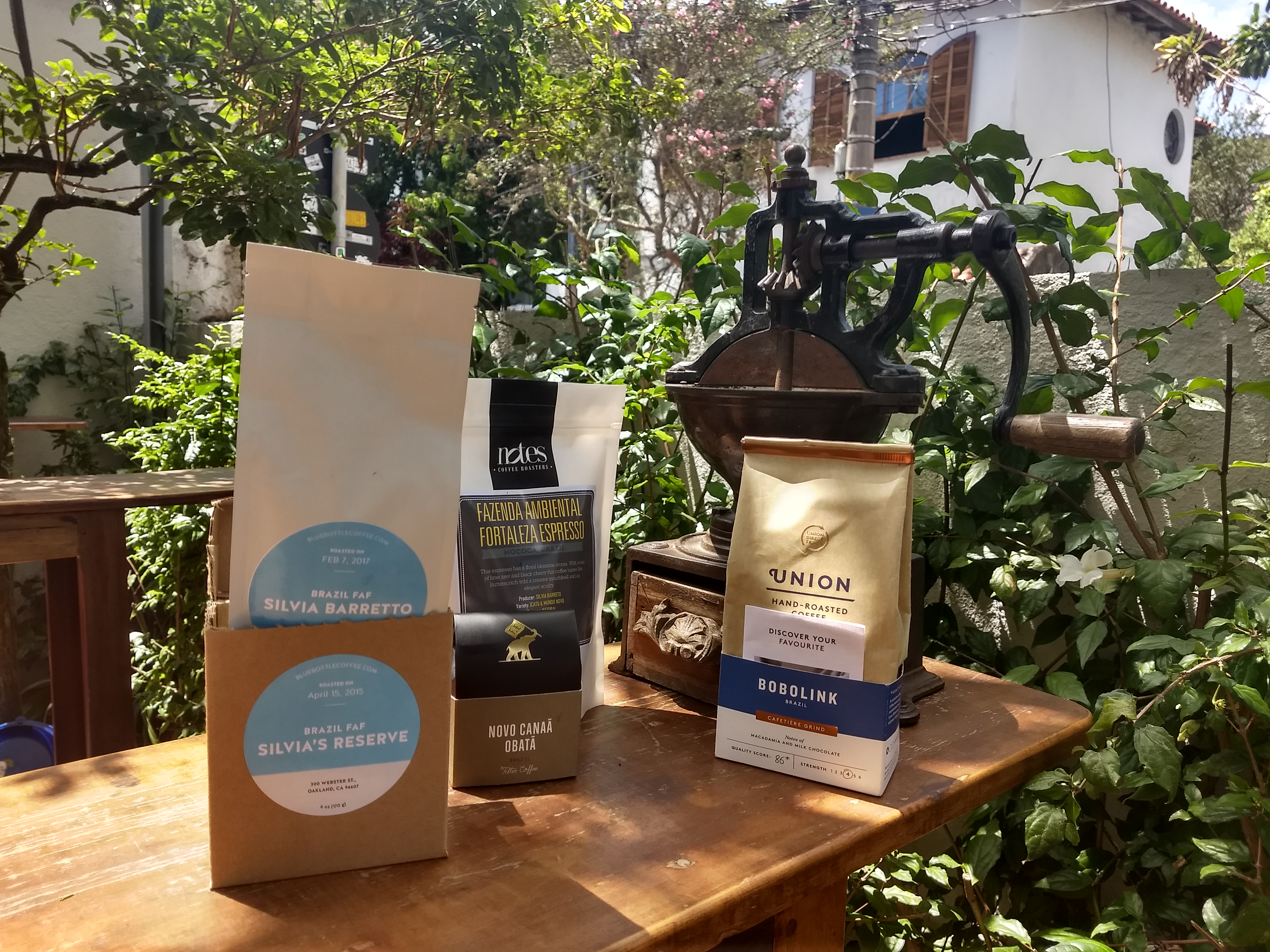
Another novelty is the partnership with the company Atilla Coffee Roaster, a Brazilian family company, a roasters manufacturer. “I am helping our partner export their machinery to France, Czech Republic, Canada and the United States”, he says.
A family of coffee farmers
Felipe represents the fifth generation of his family, coffee farmers. His fourth great-grandfather bought Fazenda Fortaleza from a cousin in 1850. His mother’s grandfather was always a daring producer, he produced washed coffee in 1980, sold his award-winning coffees to Illy and always cared about preserving nature, a passion that his mother inherited. “My grandfather had the dream of bringing the customer closer to the farm. He created several roasting machines that he had developed all by himself. And as a child, I was fascinated by his work”, he explains.
“In 2001, when my grandfather passed away, my mother chose to fully adhere to organic culture. Between 1999 and 2001, the coffee price was very low and, basically, there were no specialty coffees in Brazil”. He says.
He and his family were living in Chicago, mainly because of their father’s work, who worked with exports, and his business was going very well. Until the crisis came, Brazil began to grow and the United States entered a deep crisis and his father lost his clients to countries like China and Pakistan. “We were losing US$ 50,000 a month with the farm, we had 170 employees, produce ten thousand bags”, he confided.
His father decided to sell the coffee bags himself and, because of his ever-closer contact with the roasters, professionals obsessed with the coffee quality, Felipe began to take an interest in the subject. When he finished his degree in International Relations and Entrepreneurship at Washington University in St. Louis, Missouri, he had a professor, Howard Lenener, founder of the roaster, Kaldi’s Coffee. “I told him that my family owned a coffee farm, and when I heard it was in Brazil, he said that he had never had a good coffee from here”, he recalls.
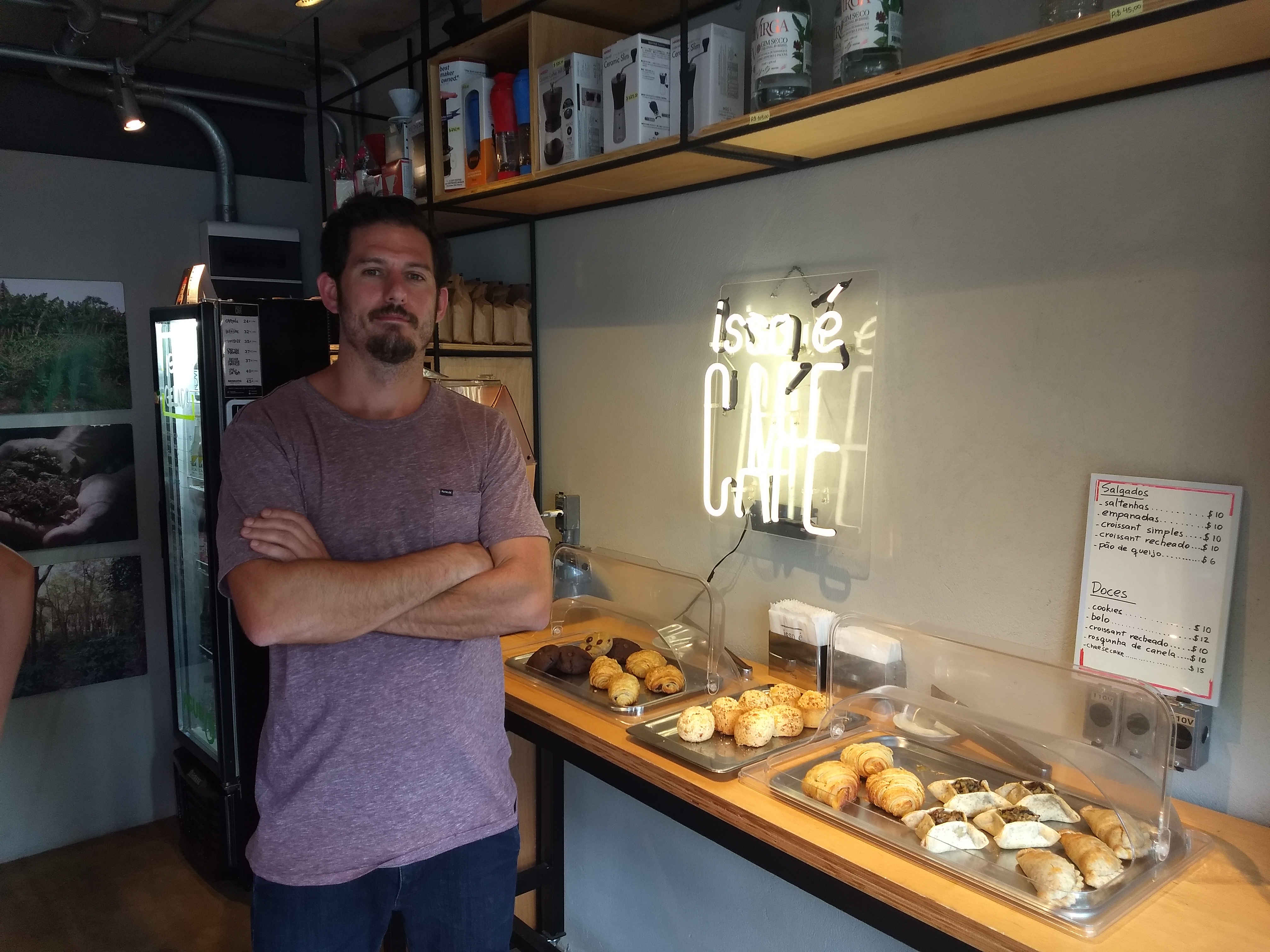
(Nowadays, people in Brazil still cannot identify the flavors. They only know bitter and sweet. It is necessary to educate the consumer)
“As the US was in a bad recession and many of my classmates were unemployed, I went to work with him. There, I acted as a handyman. I learned a lot and decided to go back to Brazil to live on the farm. I brought an American girlfriend at the time, and there I was, at the age of 21 deep in the woods. I was learning a lot about the property and receiving more and more roasters and foreign merchants in search of good Brazilian coffees. That’s when I started learning about specialty coffees”, he recalls.
To this day, his closest friends still don’t understand Felipe’s adventure, when he returned to Brazil to work with specialty coffees, and the world only bought it from Colombia, Honduras.
The rest of the family returned to Brazil, and then Felipe could spend six months in the farm and six months of the year traveling to the major consumer markets: Norway, Sweden, USA, Australia.
After seeing what was happening on the specialty coffees scene in the world, he began roasting his own coffee. In the beginning, for a bakery which produced organic products. That’s how Isso é Café was born between 2012 and 2013. Today, they work with about 100 mid-size company and family coffee farmers, in several regions, such as Serra do Caparaó, Espírito Santo, Pico da Bandeira and Venda Nova do Imigrante.
Departure from the Mirante
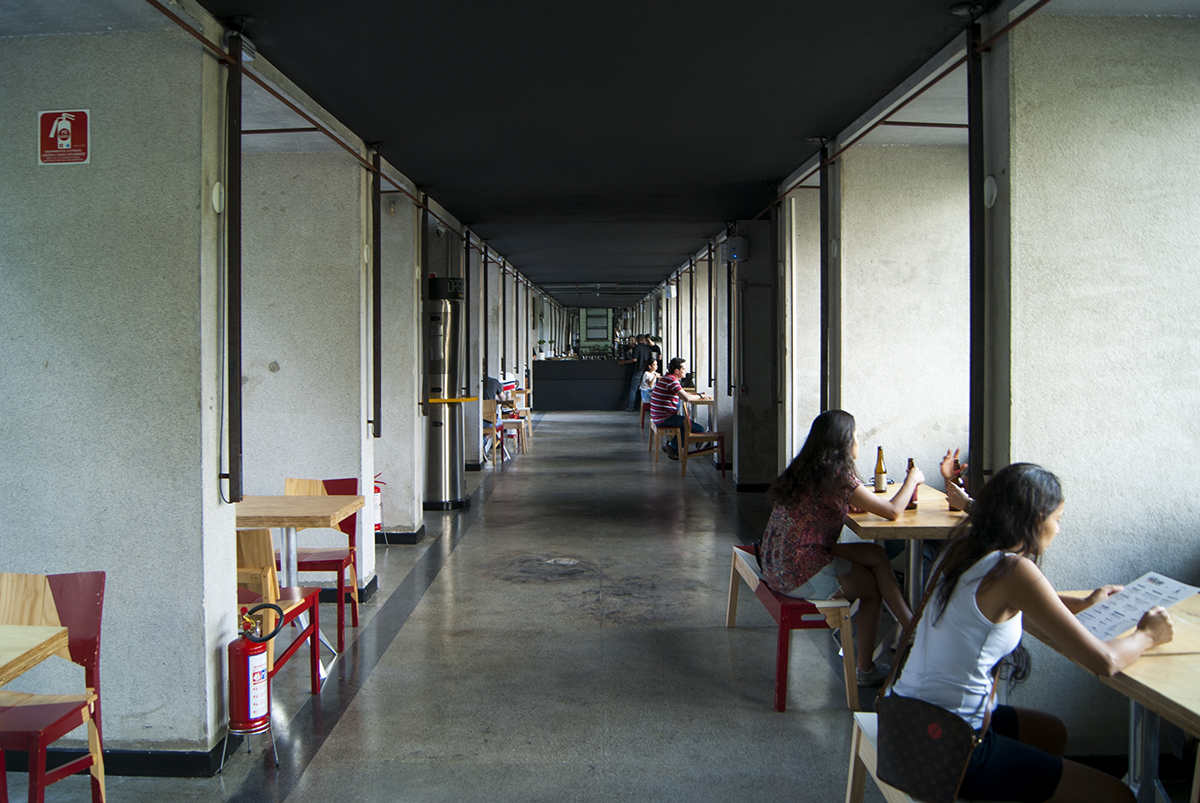
(Photo by Shoichi Iwashita)
“Facundo invited us to start the Mirante 9 de Julho with him, and since he is an amazing guy, a visionary, who thinks much in spite of money, who wants to revitalize the city and occupy it democratically, we accepted his proposal. The Mirante was a forgotten place, used only by crack users and today, it is much more than a coffee shop. It is a cultural space, it has art, culture, music, gastronomy and is there for everyone to enjoy. We have already fulfilled our role”, says Felipe.
Now, until our flagship store is open, whoever wants to taste the Isso é Café coffees just go to Batman’s Alley, in the heart of Vila Madalena. The place is small, full of plants and super charming.
(Isso É Café unit at Batman’s alley)
Specialty coffees market in Brazil
“Although I am surprised by the market growth, I’ve been noticing a lot of lack of professionalism in the whole production chain. We really need to work to create a market as good and competitive as the coffee market as a commodity. The commodity coffee, has 200 years of history, they are good in logistics, we need to copy what works for them and use their good ideas for the specialty coffee market”, he says.
“Today, when you talk about the big specialty coffee markets, nobody remembers Brazil. But we are the biggest producers and the second largest market in the world. I think we will play a very important role in the future. Specialty coffee has to be treated like wine. Foreigners will come here to have the best coffee at the origin, just as the wine consumer does today”, he explains. “That’s because we’re much closer to the producers, it is much better to consume the coffee here than after the coffee has suffered with the journey within containers and everything else. Another detail: we should roast far better than foreigners, who roast grains from different places. In my opinion, this scenario will change completely in 10 years”, he prophesies.





